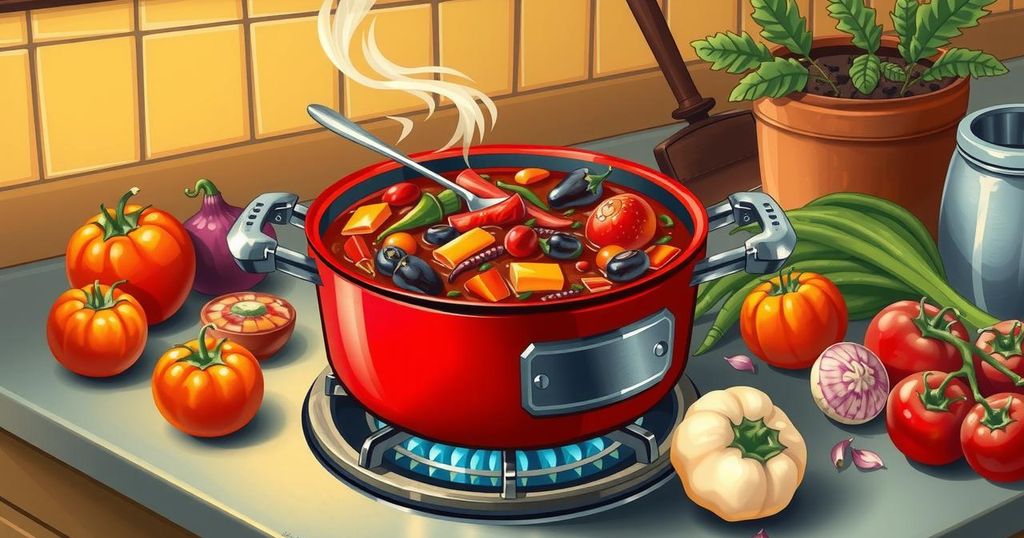Rising Cost of Stew in Nigeria: A Reflection of Economic Hardship

Nigerians are now spending over 25% of their minimum wage on a pot of stew as costs have surged by 121.05% in one year due to rising food inflation. Key ingredients have doubled in price, creating a significant burden on households.
The average expenditure for preparing a pot of stew in Nigeria has risen by 121.05 percent over the past year, compelling minimum wage earners to allocate over 25 percent of their salaries on this staple. According to the PricePally 2024 Stew Index Report, the rising costs illustrate the escalated food crisis in the country, as basic stew ingredients such as tomatoes and proteins have doubled in price since July 2023.
In particular, the cost for a pot of beef stew in Lagos jumped from N8,060 in 2023 to N17,817 by the end of September 2024. Simultaneously, chicken stew costs increased from N7,085 to N15,034, with turkey and goat meat stew experiencing similar price surges. This trend emphasizes the economic challenges faced by households.
The National Bureau of Statistics reports a concerning decline in household consumption, plummeting from N22.3 trillion to N10.6 trillion in real terms, primarily due to inflation driving down real income. As inflation rates for food remain high, households must prioritize essential spending over discretionary purchases.
The PricePally 2024 report indicates that the new minimum wage of N70,000 results in a consumption of 25.45 percent of a minimum wage earner’s income for a monthly pot of beef stew—a slight decrease from 26.87 percent in 2023. However, those preparing stew weekly face extreme financial strain, with costs outweighing the new minimum wage altogether.
The report reveals that ingredient prices have surged dramatically, particularly proteins like beef, chicken, and goat meat. For example, tomatoes have increased from N1,506 per kilogram in mid-2023 to N2,625 in mid-2024, while onions soared by an astounding 200 percent over the same period.
Price surges can be attributed to varying factors such as economic instability, supply chain disruptions, and climate-related issues. Notably, the depreciation of the naira has sharply increased import costs, while insecurity and logistical challenges further complicate the food supply issue. Additionally, erratic weather patterns have compounded these challenges by leading to transportation difficulties that heighten ingredient expenses.
In summary, the steep increase in the cost of preparing a basic pot of stew in Nigeria underscores a growing food crisis that has resulted in minimum wage earners spending a significant proportion of their income on this essential staple. With inflation affecting household purchasing power and significant price hikes in key ingredients, the economic burden on Nigerian families continues to escalate. The underlying factors driving these price increases highlight systemic issues within Nigeria’s agricultural and economic frameworks.
Original Source: businessday.ng








